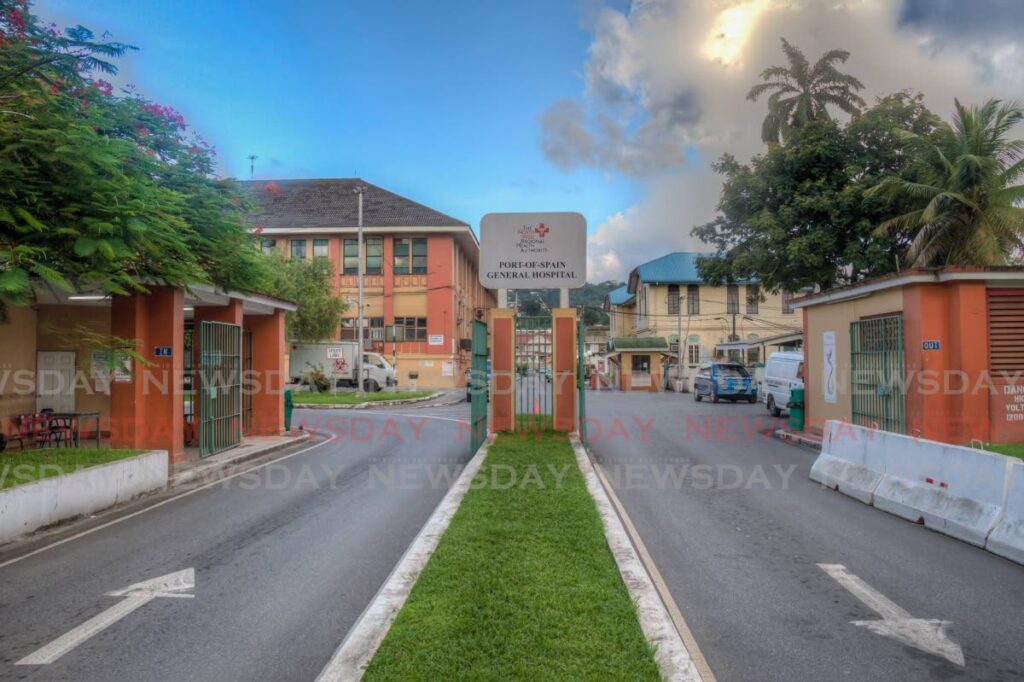National Nursing Association: Head of neonatal unit must go on leave

THE National Nursing Association (TTNA) says the recent deaths of seven babies at the Port of Spain General Hospital was "unacceptable, intolerable and demoralising."
However, the association said the deaths were predictable, as it did not believe the "rigorous standards" set up to ensure there were fewer deaths per 1,000 live births than the global benchmark (12) had been sustained.
The babies died between April 4 and 7 owing to bacterial infection at the hospital’s neonatal intensive care unit (NICU). Some of their parents have since begun legal action against the North West Regional Health Authority (NWRHA), alleging medical negligence.
An investigation has since been launched, under the supervision of Chief Medical Officer Dr Roshan Parasram.
In a statement on April 15, the TTNA said it expressed its deepest condolences to the babies' relatives. It added that its thoughts and prayers were also with the nursing personnel working at the unit.
"We know that they would be experiencing psychological distress at this time because of their emotional investment in the nurse-patient relationship that developed with the neonates."
It said it noted the "revelations" by the North West Regional Health Authority (NWRHA) that the NICU was contaminated with three different bacterial organisms "known to pose significant risks to vulnerable neonates...
"This is certainly alarming considering that just a couple of years ago in 2021, during the covid19 pandemic, the country satisfied social development goal number three, target two by achieving less than the global benchmark of 12 deaths per 1,000 live births by 2030."
It said nosocomial (originating in hospital) infections (NIs) increase the duration of hospitalisation, use of medical resources and overall cost of care. It added that NIs account for 40 per cent of all reported neonatal deaths in developing countries.
"Indeed, this is cause for national outrage and condemnation as the news of these deaths is being reported and followed widely in the regional and international press.
"As the most vulnerable group in the hospital setting, neonates are at risk for acquiring a range of NI including pneumonia, urinary tract infections, bloodstream infections, meningitis, secondary skin infections, and infections of the throat, eye, ear, or nose."
It said the inability to prevent the introduction and spread of NIs to prevent "avoidable deaths" within the NICU are owing to management's inability to
The inability to prevent the introduction and spread of these NI and to prevent avoidable deaths within the NICU department, are largely due to management inability to maintain adequate infection control practices, manage overcrowding in hospitals and effectively manage resources, and iv. provide adequate supervision.
"Have we learnt nothing in the 23 years since the publication of Orrett & Shurland 2001 research paper – Neonatal Sepsis and Mortality in a Regional Hospital in Trinidad: Aetiology and Risk Factors – which highlighted the deficiencies within the regional health authorities that have led to the incidence of infection among low birthweight infants was 85.6 per cent?
"Even more importantly, the paper called for the urgent need to improve the staff-to-patient ratio in the neonatal unit, and for staff to be constantly reminded to employ simple infection control practices such as proper handwashing to reduce cross-infections."
The authority then suggested four main areas of preventative measures to be implemented moving forward.
The first was to improve the chances of full-term pregnancies by increasing primary care interventions, reducing district health visitors, take steps to ensure expectant mothers receive antenatal care and highlight the importance of improving the health status of the parents prior to conception.
The second suggestion was to reduce introduction of NIs in NICU by stopping foot traffic of unauthorised personnel and limiting that of those authorised, allowing nursing personnel to retake control of ward management, as well as safe insertion, maintenance and removal of vascular access devices.
It called for the prevention spread of NIs in NICU by ensuring a clear floor area for each incubator/cot/bed of a minimum of 150 square feet, implementing one-to-one nurse staffing ratios in neonatal intensive care, continuous bacteria/infectious disease surveillance and continuous sanitation and sterilisation measures.
The final suggestion was to hold those accountable as an example to prevent recurrence.
"While not attributing blame to anyone, the head of the department and/or the medical chief of staff must be immediately placed on administrative leave while a comprehensive independent investigation is conducted, with appropriate action to follow following investigation.
"Administration who failed to adhere to the National Neonatal Transfer Protocol must be disciplined accordingly."
It said the association will closely follow the developments of the ongoing investigations.
"The association will not allow the circumstances that have caused the recent deaths of seven babies at the Port of Spain General Hospital NICU department to continue to exist (there) or any other healthcare institution in Trinidad and Tobago."


Comments
"National Nursing Association: Head of neonatal unit must go on leave"